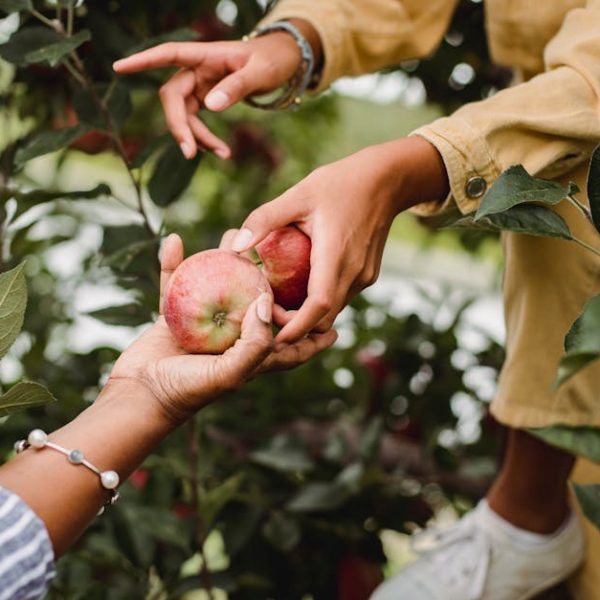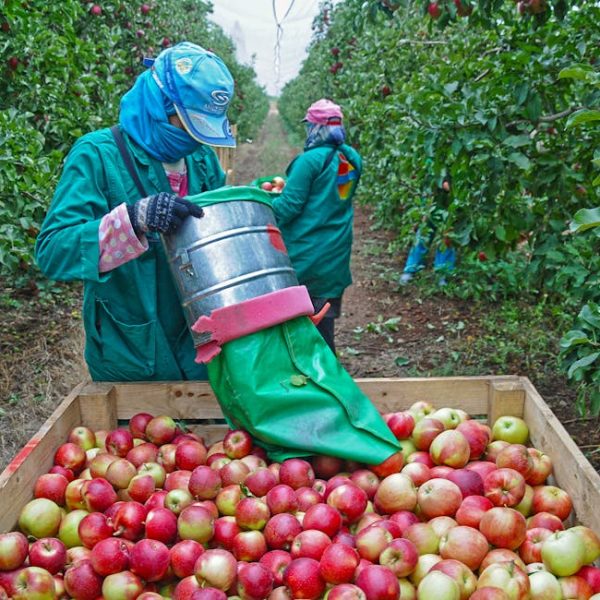When planning your perfect home garden, are you considering which plants can help or hinder each other’s growth? That’s called ‘companion planting,’ a method as old as agriculture itself. It’s an organic way to control pests, maximize space, and encourage plant health, all by planning your planting pattern strategically.
Onions are an excellent candidate for companion planting. Their potent aroma can help deter pests, while other plants can in turn boost the health and flavor of your onions. But understanding which plants you should – and shouldn’t – plant alongside your onions can be crucial for a successful onion harvest.
Understand Companion Planting with Onions
Companion planting is the practice of growing certain plants together to obtain mutual benefits. With onions, companion planting can enhance flavors, deter pests from the entire garden, and promote overall healthy growth. The strong odor of onions confuses insects that prey on other plants, while the good companions in turn support onions in their growth.
Top Companion Plants for Onions
Several plants pair well with onions. Here are a few notable ones:
- Carrots: A classic companion for onions. Carrots help deter onion flies, while onions return the favor by warding off carrot flies. An iconic duo for any garden.
- Lettuce: This is a fast-growing crop that shields slow-maturing onions from the sun, providing them with some needed shade. Additionally, lettuce roots are shallow and don’t interfere with the root system of onions, making them an excellent companion.
Pro tip: Be mindful of the distance between your onion plants and these companions to ensure beneficial interaction without competition. Generally, a foot or so of space between the plants works well.
Plants to Avoid Planting with Onions
Just as some companions can benefit onions, some plants can introduce unwanted challenges. Among these are:
- Peas: The growth and flavor of peas can be hindered by nearby onions. It’s best to keep these two separated in your garden.
- Beans: The strong aroma of onions, although beneficial for deterring pests, could repel beans. Plant these in separate areas of your garden to be safe.
Before planning your garden layout, it’s worthwhile to research and understand which species pair well and which do not. This can save you future headaches and result in a more productive garden.
Optimizing Garden Layout for Onion Companion Planting
To maximize the benefits of companion planting, it’s crucial to arrange your plants thoughtfully. For onions, this might mean placing them near plants that commonly suffer from insect damage. Their strong smell can serve as a natural insect repellent.
Checklist for planning an optimal garden layout:
- ✅ Maintain appropriate spacing between plants
- ✅ Consider the growth cycles of different plants
- ✅ Ensure sun accessibility for each plant
By adhering to this checklist, you’ll create a garden where your plants – especially your onions – can thrive.
Enhancing Onion Growth through Companion Planting: Pros and Cons
Companion planting can be a game-changer for your onions, with numerous benefits to enjoy. However, it’s also important to consider some of the challenges associated with it. Here are a few you might encounter:
Pros:
- Boosted yield: Companion planting can help onions grow bigger and taste better.
- Pest Reduction: The strong aroma of onions repels a range of pests, protecting not just themselves but also their plant companions.
- Improved overall health: When grown with suitable companions, onions can enjoy healthier growth and produce better harvests.
Cons:
- Detailed planning: Companion planting requires a fair amount of research and planning, to make sure you’re pairing your plants correctly.
- Increased maintenance: With different plants in the same garden, you’ll need to adjust your care regimes according to the needs of each plant.
- Potential for competition: If not properly spaced, plants can compete for sun, water, and nutrients. This can negatively impact the growth and health of your onions and their companions.
It’s crucial to weigh these advantages and disadvantages to decide if companion planting is right for your onion garden.
Companion vs. Solo Onion Planting: A Comparison
Wondering how companion planting stacks up against traditional solitary planting? Let’s compare the two practices:
| Solo Onion Planting | Onion Companion Planting | |
|---|---|---|
| Pest Control | May require chemical measures | Often managed naturally by the chosen plant companions |
| Planning and Maintenance | Easier to plan and maintain as it involves only one type of plant | Requires more research and careful maintenance tailored to each plant |
| Yield and Flavor | Depends solely on the health of the onion plants | Can be enhanced through the supportive properties of companion plants |
While it does demand more effort in planning and upkeep, the unique advantages of onion companion planting, particularly in an organic home garden, can make it a fruitful endeavor!
Key Takeaway:
- Companion planting is a beneficial practice which includes growing certain plants together for mutual benefits like pest control, utilizing garden space efficiently, and fostering healthy plant growth.
- Onions can be a great candidate for companion planting, with plants like carrots and lettuce making good companions that enhance the growth and flavor of the onions.
- However, plants like peas and beans should be avoided as their growth can be hindered by onions.
- Although there are numerous benefits to companion planting, such as increased yields and reduced pests, it does require detailed planning, careful maintenance and monitoring to prevent plant competition.
Remember, a perfect garden is like a great recipe, the correct pairings make the biggest difference! It may seem overwhelming initially, but the rewards of companion planting far outweigh any initial challenges. And always remember, your garden is your sanctuary, plant what makes you happy!
FAQs
Q: Can I do companion planting in container gardens?
A: Yes, companion planting can also be done in container gardens. Just ensure that the pots are spaced appropriately to avoid competition for resources.
Q: Can companion planting affect the taste of my vegetables?
A: In some cases, yes. Companion planting can sometimes enhance the flavors of your vegetables, including onions.
Q: Do onions need a lot of sunlight?
A: Yes, onions generally need at least six hours of direct sunlight daily for healthy growth.
Q: How often should I water my onions?
A: Onions generally require an inch of water per week, including rainfall. This may vary depending on the weather and soil type.
Q: How can I increase my onion yield?
A: In addition to companion planting, onions benefit from rich, well-drained soil and sufficient watering. Regular weeding and use of organic fertilizer can also help increase your yield.
Encourage your readers to delve deeper into the rewarding world of gardening by sharing this article, trying out new combinations, and exploring more posts on our platform. Happy gardening!






